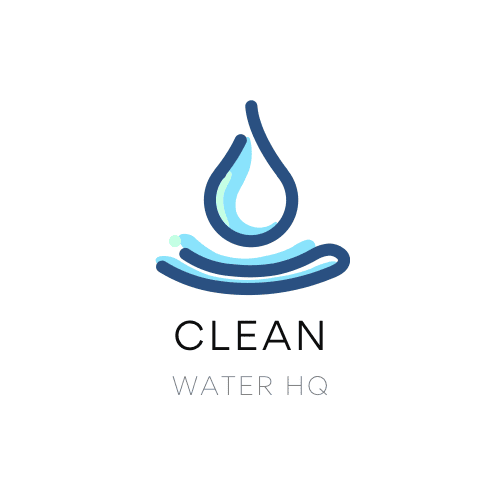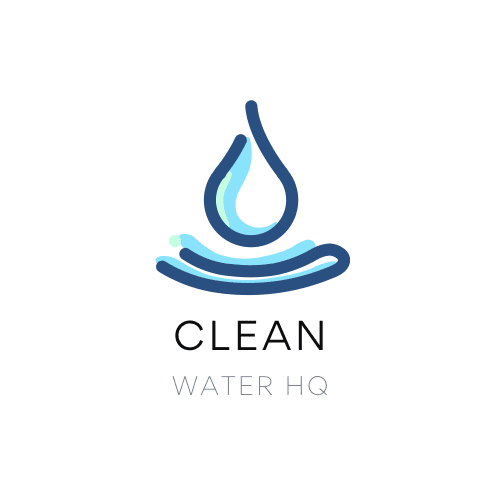There are a number of reasons why tap water can taste sweet. It’s possible that the water is hard, there’s a pH imbalance, or mineral buildup in the pipes.
Most of the common causes aren’t dangerous, but if you notice the water was sweet after having nausea, you should consult your physician.
In this article, I’ll walk you through the most common reasons why tap water tastes sweet and how you can correct the issue.
Common Causes of Sweet Tap Water
Don’t panic if you find your tap water has a sweet taste. While you may want to correct the problem, in most cases, it isn’t dangerous.
Mineral Content
When a high concentration of minerals like magnesium, calcium, iron, or potassium are present, then your water may taste sweet. This is often referred to as “hard water.”
These minerals are naturally present in water and tend to exist at a higher concentration in groundwater, like that drawn from a well. Many areas of the United States, particularly across the middle of the country, rely on hard groundwater.
A similar phenomenon of “sweetness” happens when there is a balance between potassium and sodium in water. This isn’t necessarily a bad thing; in fact, many people prefer water that is slightly hard. If you buy bottled alkaline water, the water will taste sweet.
Although it’s safe to drink water with mineral content, hard water may:
- Affect the water quality so that your hair and skin get dull or your laundry gets stiff
- Leave a layer on your appliances that use water
- Leave deposits of minerals in the plumbing system
If you’re not sure if you have hard water, look for the telltale signs of “limescale” buildup near your water fixtures. In the image below, you can see an example of limescale which usually presents as a chalky white substance around faucets and inside water appliances. Sometimes it appears green, pink or brown too.

Plumbing System
In some cases, minerals can enter a home’s water supply due to an old plumbing system that is now corroding. The corrosion of pipes leaches metal and material into the tap, which often appears yellowish.
If your residence was build in the era of lead pipes, get this checked out. Lead can cause serious health issues if left unchecked. You can check for it easily with a simple water test kit.
Another common plumbing issue is the build-up of limescale from hard water, which is connected with my previous point about “mineral content.”
I couldn’t find an image of residential water pipe corrosion that isn’t totally appalling, but the following photo should give you an idea of what it might look like when corrosion starts inside a pipe.

Your Diet & Sense of Smell
Did you eat or drink something spicy, sour, or bitter just before drinking from the tap? Sometimes, water tastes sweet due to the presence of citric acid, for example, in lemons.
Let’s say that you’re drinking water to douse a spicy pepper from your tongue. This could activate the sweet sensory receptors on your taste buds, making water taste sweet.
It’s also worth noting that sometimes our brains trick us. It can be challenging to distinguish between taste and smell. If you’re smelling something sweet, then whatever you are drinking may taste similarly. Strong smells like that of onions can also make water taste sweet.
pH Imbalance
Remember in chemistry class you learned that the neutral pH scale is 7 for water?
Anything below 7 means that water is acidic. It tastes sour and bitter.
If your water pH is above 7, that means the water is alkaline.
Alkaline water often has a high content of minerals. That’s why your water may taste sweet. If you are drinking naturally alkaline water, then you need not worry about any health issues.
On the other end of the spectrum, there can be a sweet taste to water if it is quite low on the pH scale. Water can taste like baking soda at this point. You may find the taste of baking soda sweet.

Use a home test kit to find out if there is a pH imbalance in your tap water. If so, it’s possible to correct it with a pH-neutralizing filter. Not only will this impact flavor, but it will also help prevent pipe corrosion.
Dehydration & Hormone Imbalance
Dehydration is another common cause for sweet tasting water.
When you wake up in the middle of the night to take a drink, you may have noticed that the water tastes sweet. That’s because the secretions in your stomach are acidic in nature. Acid mixed with water makes it sweet.
Early in the morning before you brush your teeth, you could find there’s a sweet taste when you drink water. That’s because of the bacteria present in your mouth. Brush your teeth and use an alcohol-based mouthwash before drinking water.
Patients with diabetes suffer from hormonal imbalances. Your body has hormones that regulate your blood sugar level. These hormones prevent your blood sugar from rising too high or falling too low.
When these hormones are not functioning properly, your blood sugar level can rise. This can cause a sweet taste in your mouth. That’s why when you drink water, it may taste sweet.
If you are pregnant, you will experience hormonal imbalance.
If you’re experiencing morning sickness during pregnancy, you may also notice that water tastes sweet after vomiting, as a result of the acidic secretions.
What To Do When Water Tastes Sweet
It’s helpful to start by testing your water. There are a few basic tests that you can run that will alert you to the mineral content of your water, and harmful metal leaching like lead.
Here are a few things you can do, once you know.
Flush Out The Plumbing System
Run the tap for five minutes to flush out the plumbing system. Turn on all the cold water taps to full. The high water flow rate through your home’s main supply line may help loosen any particles and get rid of any mineral build-up in the system.
Soften The Water
If you’ve got hard water, then a salt-based softener or water descaler may provide a good solution. They aren’t cheap to own and operate, but they will make a massive difference in the detectable mineral content in your water. As a bonus, softening or descaling your water will also prevent limescale buildup in appliances and around faucets.
Water Filtration System
Install a filtration system to get rid of a number of contaminants. For most people, an under-sink carbon filter with a dedicated faucet is an effective solution for drinking water. It won’t remove hard water minerals effectively but can take care of several other common contaminants.
A reverse osmosis system will soften water slightly but isn’t an economical solution for hard water in the long run.
Consult A Physician
If all else fails, consult a physician. Sometimes water sweetness comes down to something as simple and discreet as acid reflux. The solution may be as simple as changing your meal times.
Call A Plumber
If you discover a lead in your tap, you should take action right away. Lead poisoning is no joke, and can happen based on pipes used in homes of a certain era.
Also, talk to your neighbors and find out if they have sweet-tasting water too. If they do, you should call the local water authorities immediately. The whole neighborhood may be at risk.
FAQs
Is it OK to drink water that tastes sweet?
It is OK to drink water that tastes sweet. But it’s better to find out the cause by having your water tested.
Does diabetes make water taste sweet?
Yes, diabetes brings about hormonal imbalances. When this happens, you may have a high blood sugar level. Your mouth may be sweet and when you drink water, it may taste sweet.
Does water taste sweet when I’m dehydrated?
Yes, water can taste sweet when you’re dehydrated. That’s because there are acidic secretions that make water taste sweet.


